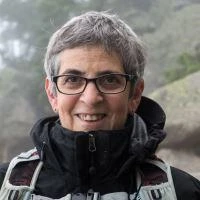
Connect
About
Rita Astuti is an expert of the anthropology of Madagascar. Her writings, based on extensive fieldwork conducted since the late 80s, have been about kinship, personhood, gender, group identity and belief. After spending a significant amount of time working alongside cognitive and developmental psychologists (at NYU and Harvard), she started to combine experimental methods with more traditional ethnographic approaches. This way of working has transformed the analysis of her ethnographic material, leading her to challenge some well-established anthropological tenets, e.g., about kinship, and to generate new insights about processes of cultural learning.
In her most recent field trips, she has been investigating how the fishing community she has been studying over the past three decades is responding to the depletion of fish stock in the local waters, chiefly through a seasonal migration along the northern coast of Madagascar.
Rita Astuti is the author of People of the Sea: Identity and Descent among the Vezo of Madagascar (CUP, 1995) and, with developmental psychologists Susan Carey and Gregg Solomon, of Constraints on Conceptual Development (Monographs of the Society for Research in Child Development, 2004). You can find some of her articles below, in the list of selected publications. You can also listen to an account of her thirty years of research in Madagascar in The Know Show Podcast, recorded in 2020 during the COVID lockdown.
Expertise
cognitive anthropology; cognitive psychology; cross-cultural studies; developmental psychology; gender; identity; kinship